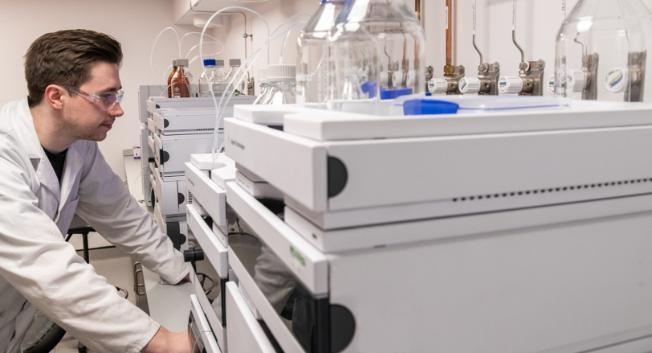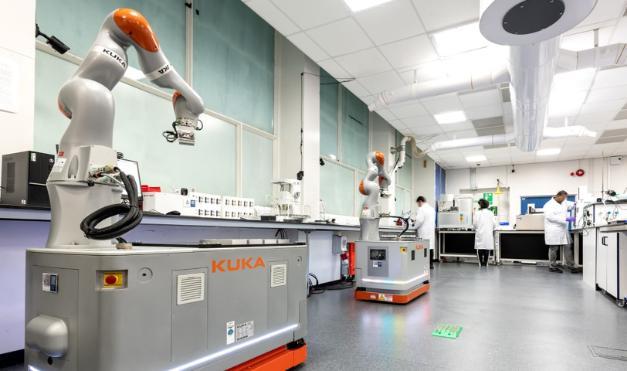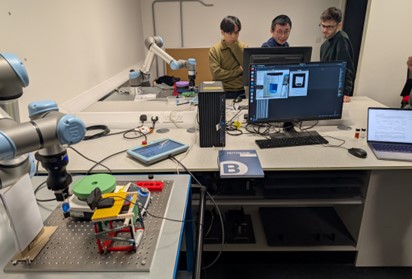Postgraduate study
Do you want to address exciting scientific questions, working with internationally renowned teams in our first-rate academic environment? Then we have plenty to offer you in Liverpool
We offer both postgraduate research opportunities and postgraduate taught programmes in fundamental and applied science.

Our degree programmes will place you working in our world-leading Department with multi-disciplinary research expertise, unparalleled facilities and dynamic support infrastructure to revolutionise your research and development. The Chemistry department is a place where academic and industrial researchers work side by side, sharing knowledge in highly advanced research labs and supporting your career development.
Join us and you’ll be based in a state-of-the art environment that has a strong focus on cutting-edge interdisciplinary research. We are internationally known for our research, with 99% of our outputs ranked as internationally leading or excellent in REF2021. Our 50 academic staff cover a broad scientific spectrum and we operate in 5 flexible research groupings.
- Chemical Models
- Chemistry of World Health
- Energy and Interfaces
- Materials Chemistry
- Organic Synthesis and Catalysis.
Our impact is felt on a global scale, from antimalarial drug discovery to one of the best-known methods for making nanoparticles.
Current research
As an indication, here are some current topics on offer to postgraduate students.
- Next generation battery technologies and storage materials
- Automated synthesis robotic workflow
- New materials for net zero applications
- New Polymers as functional coatings
- Synthesis of industrial important molecules.
- Novel antimalarial compounds
Postgraduate Research Programme or Postgraduate Taught Masters Programme?
Choosing between a Postgraduate Research Programme (PGR) and a Postgraduate Taught Masters Programme (PGT) depends on your career goals, learning style, and interest in research.
Postgraduate Research Programme (PGR)
Focus: Independent research, original contribution to knowledge.
Typical Degrees: MPhil, PhD
Structure: The programme is primarily focused on self-directed research under one or more supervisors. The end point being submission of a thesis or dissertation. It will include minimal taught modules (if any).
Duration: MPhil 1-2 years, PhD 3-4 years if completed full time.
Ideal for those aiming for careers in academia or research-intensive industries, students with a strong interest in a specific research area and individuals who prefer self-directed, project-based learning.

Postgraduate Taught Masters Programme (PGT)
Focus: Advanced knowledge, specialist expertise, career enhancement, postgraduate progression
Typical Degree: MSc
Structure: The programme typically comprises taught modules in Semesters 1 and 2, followed by a research project during the summer. Learning methods include lectures, workshops, practical sessions, structured coursework, and group projects. The programme culminates in submitting a final dissertation based on the summer research project.
Duration: 1 year (full-time)
Ideal for those looking to enhance their career prospects, prefer structured learning, want to upskill, wish to change career paths, or aim to specialise in a subject of interest. The MSc is also an excellent pathway to further postgraduate research, such as a PhD, for students who have completed their undergraduate studies with a BSc.
